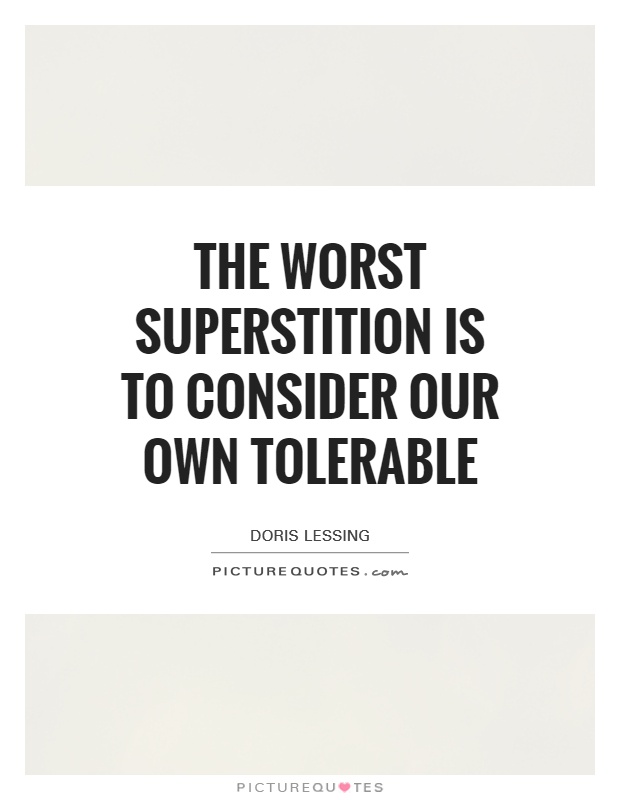The worst superstition is to consider our own tolerable

The worst superstition is to consider our own tolerable
Doris Lessing, a renowned British novelist, once said, "The worst superstition is to consider our own tolerable." This statement holds a profound truth that resonates with the human experience in many ways. Lessing's words remind us of the danger of complacency and the importance of questioning our own beliefs and assumptions.In the context of superstitions, Lessing's statement suggests that we should not blindly accept our own beliefs as true or acceptable. Superstitions are irrational beliefs or practices that are often based on fear or ignorance. They can be harmless, like avoiding walking under a ladder, or more harmful, like believing in witchcraft or magic. By considering our own superstitions as tolerable, we are essentially giving them power over us and allowing them to influence our thoughts and actions.
Lessing's words also apply to broader aspects of life beyond superstitions. In a world where we are constantly bombarded with information and opinions, it is easy to become complacent and accept our own beliefs as the ultimate truth. However, this can lead to closed-mindedness and a lack of critical thinking. By questioning our own beliefs and being open to new ideas, we can grow and evolve as individuals.
In her writing, Lessing often explored themes of identity, power, and social change. She challenged conventional wisdom and encouraged her readers to think for themselves. By considering our own beliefs as tolerable, we are limiting our potential for growth and self-discovery. We must be willing to confront our own biases and prejudices in order to truly understand ourselves and the world around us.












 Friendship Quotes
Friendship Quotes Love Quotes
Love Quotes Life Quotes
Life Quotes Funny Quotes
Funny Quotes Motivational Quotes
Motivational Quotes Inspirational Quotes
Inspirational Quotes